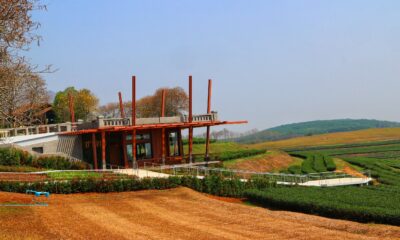

Features
Reflections on developing a responsible investment approach to agricultural land
A recent discussion forum organised by the EIRIS Foundation in association with Oxfam brought NGOs and investors together to explore what a responsible approach to investments in agricultural land might look like. Discussion focussed on gaps in current practice and opportunities to address these.
The forum highlighted that land acquisition in emerging markets is a big issue and, as one participant suggested, one that’s likely to only get bigger. Oxfam’s recent report Our Land, Our Lives states that in poor countries, foreign investors bought up an area of land the size of London every six days between 2000 and 2010. Access to land is at the heart of developing global trends, including global population increases, changing habits in consumption and the impacts of climate change.
For NGOs campaigning about land investment, the issue is fundamentally about the effect on people and the environment on the ground – the violation of human rights, the displacement of people, their access to food and livelihood, and the impact of agricultural land deals on biodiversity and water resources, for example. There are a number of detailed NGO reports on the issue.
An interesting revelation of the forum is that investors may not realise their exposure to land-related risks. Potential exposure is various and complex. Investors can be exposed through: direct investments in land; or indirectly through funds (or funds of funds) that may invest in land; or indirectly through investment in companies or other investment vehicles with an investment in land (e.g., listed companies in various sectors such as food, retail, financial services or extractives; or private equity); or even through investment in bonds in land.
For responsible investors looking to invest in land, the forum suggested that there are currently a number of challenges. Here are a few:
- There are a proliferation of principles and standards relating to land investments (e.g. UN Committee on World Food Security Voluntary Guidelines on The Responsible Governance of Tenure of Land, Fisheries and Forests in the Context of National Food Security; the Principles for Responsible Investment in Farmland; and the IFC Performance Standards, to name but a few). Where does the responsible investor begin? Participants at the forum asked how the standards are working together. Some respondents felt that existing standards have engaged with only investors or only NGOs, rather than both. It was suggested that there remains a need for investors to have a set of succinct and practical guidelines.
- Despite the existing standards, investors still face the challenge of implementation of standards on the ground.
- There also appears to be a lack of agreement on what is ‘good practice’.
Equally, those campaigning for better investment in land face their own challenges. For example, the forum suggested that finding the right tone for dialogue with investors can be difficult. NGOs need to encourage responsible investors to invest in land and to do so in a manner that has a positive, sustainable and long-term effect on the ground.
Participants discussed ideas for where dialogue heads next. Suggested opportunities for further development included, amongst others:
- Greater engagement between local communities, NGOs and responsible investors about the implementation and development or strengthening of existing principles/standards. Both groups could mutually input into discussion around some of the existing and emerging standards.
- More capacity-building to create greater awareness and knowledge of the issue. This might include greater information for governments and investors about potential positive outcomes from responsible investment in land and agriculture, and the requirements necessary to realise benefits for local communities and investors.
- Best practice templates for consultants could help. This could help consultants respond to investor questions about implementation on the ground and ask the right questions of funds or companies.
- Wisdom could also be gained from other sectors (e.g., extractives) on due diligence questions around land investments.
The forum voiced ideas for where the gaps are currently and where there may be opportunities. The forum is a stepping stone towards continued conversations. For those who missed the forum, EIRIS will be running a webinar on 14 December, Investing in Farmland: Reflections on Developing a Responsible Investment Approach. For more information and to register click here. Investors and NGOs welcome.
Virginia Jennings is communications & events coordinator at EIRIS. This blog originally appeared on the EIRIS website.
Further reading:
Agricultural responsible investment principles set for consultation
Calls for sustainable investment to prevent unmanageable demand for food


 Features11 months ago
Features11 months agoEco-Friendly Cryptocurrencies: Sustainable Investment Choices

 Energy11 months ago
Energy11 months agoThe Growing Role of Solar Panels in Ireland’s Energy Future

 Energy10 months ago
Energy10 months agoGrowth of Solar Power in Dublin: A Sustainable Revolution

 Energy10 months ago
Energy10 months agoRenewable Energy Adoption Can Combat Climate Change




























